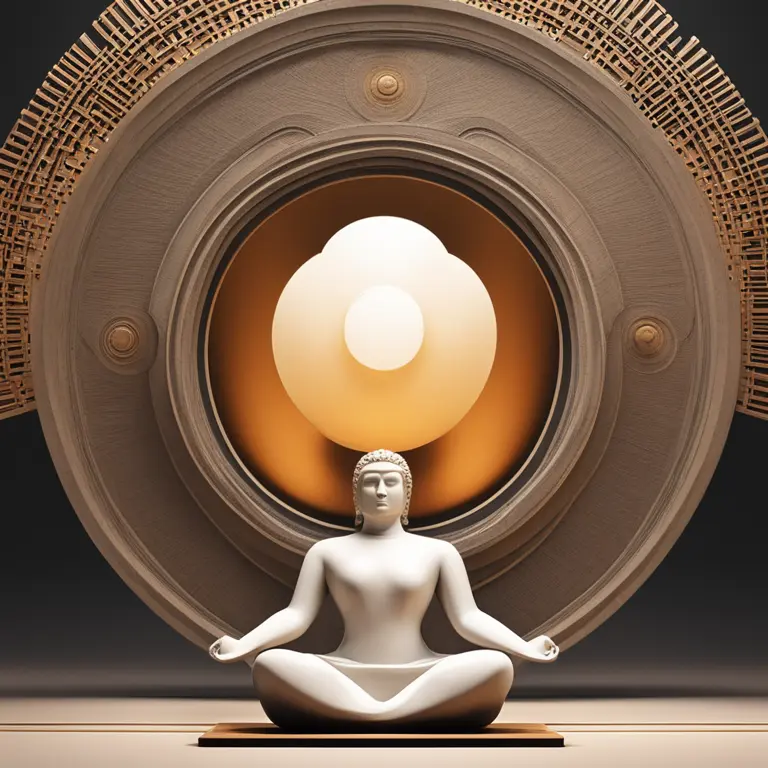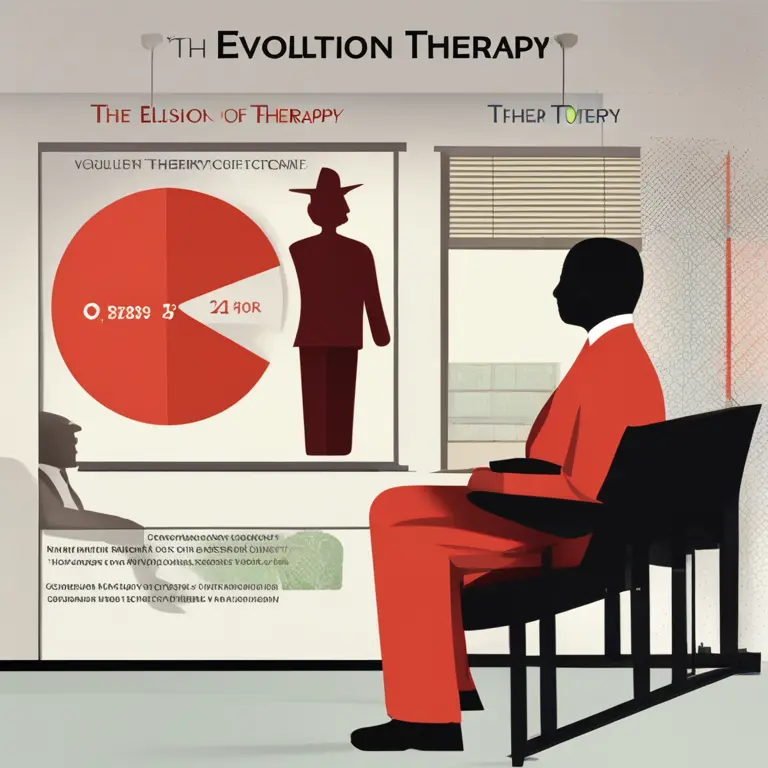
Meditation & Therapy: A Comparative Guide
Discover the nuanced differences between meditation and therapy, their individual benefits, and how they can complement each other in a holistic approach to wellbeing.
article by Hina Kurosawa
Meditation: Ancient Practice Meets Modern Life
Meditation has stood the test of time as a revered practice aimed at cultivating inner peace and self-awareness. Originating from spiritual traditions, it is now widely recognized for its mental health benefits. Technological advances such as meditation apps have boosted its accessibility, making it a staple in modern self-care routines. As we progress into 2024 and beyond, the integration of meditation in daily life is more seamless than ever, with virtual reality environments and AI-assisted mindfulness exercises gaining traction. These innovations help individuals tailor their meditation experience and make consistent practice more achievable.

Therapy: Professional Guidance through Healing
The role of therapy in mental health and personal development has evolved substantially. Modern therapy encompasses a variety of modalities, such as cognitive-behavioral therapy (CBT), psychodynamic therapy, and more recent developments in online counseling services. The stigma surrounding therapy continues to dissipate, with a growing emphasis on therapy as a proactive and normalized aspect of maintaining mental wellness. As therapists adopt new tools, including virtual reality for exposure therapy and AI for predictive analyses of therapy outcomes, the future of therapy promises greater personalization and efficacy.

Meditation Versus Therapy: Unpacking the Differences
While both meditation and therapy aim to promote mental wellbeing, they fundamentally differ in approach and execution. Meditation is usually a self-led practice involving exercises to enhance mindfulness, concentration, and emotional regulation. In contrast, therapy typically involves interaction with a licensed professional who provides personalized strategies for addressing psychological issues. Meditation focuses on the present moment and cultivating inner serenity, whereas therapy often delves into past experiences and cognitive processes to foster healing and behavior change. These distinctions are crucial when choosing the right method for one's personal growth journey.

Complementing Wellness: Combining Forces
The intersection of meditation and therapy offers valuable synergies. For many, therapy can unearth deep-seated issues that meditation alone may not resolve, while meditation can reinforce therapeutic gains and enhance overall mindfulness. It's not uncommon for therapists to recommend meditation as a supplementary practice to fortify mental resilience and provide clients with self-help tools. Similarly, frequent meditators might find therapy beneficial when facing hurdles that meditation doesn't address. This complementary relationship underscores that one does not have to choose between meditation and therapy—they can function harmoniously together.
Choosing What's Right for You
Deciding between meditation and therapy largely depends on an individual’s specific needs and circumstances. Those seeking to manage stress, improve focus, or explore spiritual growth may find meditation especially beneficial. Therapy, on the other hand, might be the better choice for individuals grappling with complex emotional issues, mental health disorders, or desiring structured guidance. It's also important to consider personal preferences, whether one enjoys solitary practices or thrives with professional support. Consulting with mental health professionals can help clarify the best approach to one's self-improvement goals.
Looking Ahead: The Future of Mindful Wellbeing
As we venture farther into the decade, the future of wellbeing seems increasingly integrative, blending ancient wisdom with advanced science. The continued emergence of digital wellbeing platforms and AI-driven therapeutic tools suggests a future where mental health support is more accessible and diverse than ever before. Moreover, the growing acceptance of holistic health practices anticipates a society that values both meditation and therapy not as competitors, but as complementary allies in the quest for personal fulfillment and mental health.
Published: 1/15/2024
Modified: 1/15/2024
More predictions
Come back here soon to learn more about yourself and your future


Calming the Storm: Mindfulness Meditation for Anger
Discover how mindfulness meditation can be a powerful tool for anger management, promoting inner peace and emotional balance.


Healing Through Mindfulness: Meditation & Trauma Recovery
Mindfulness meditation offers a powerful tool for individuals seeking solace and healing from traumatic experiences. Discover how this practice can aid in the journey towards inner peace.


Mindfulness Meditation Basics for First Graders
Introducing foundational mindfulness meditation practices to instill calm and focus in first-grade students.